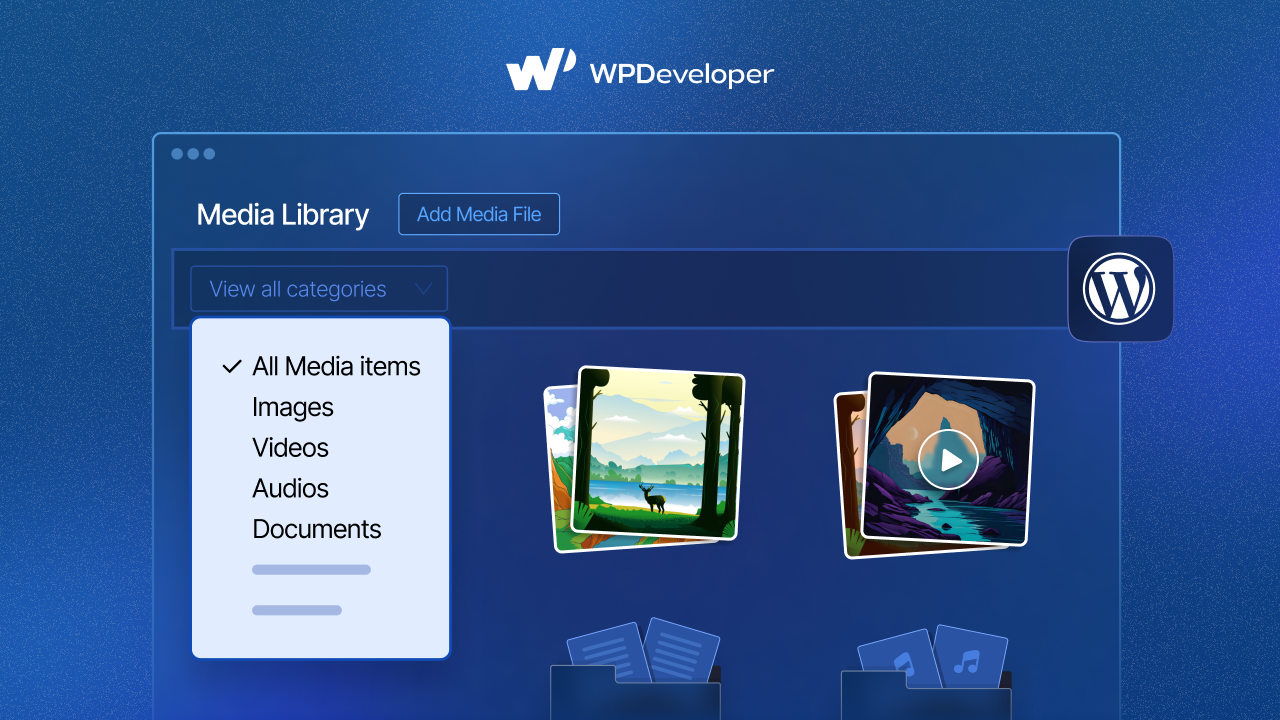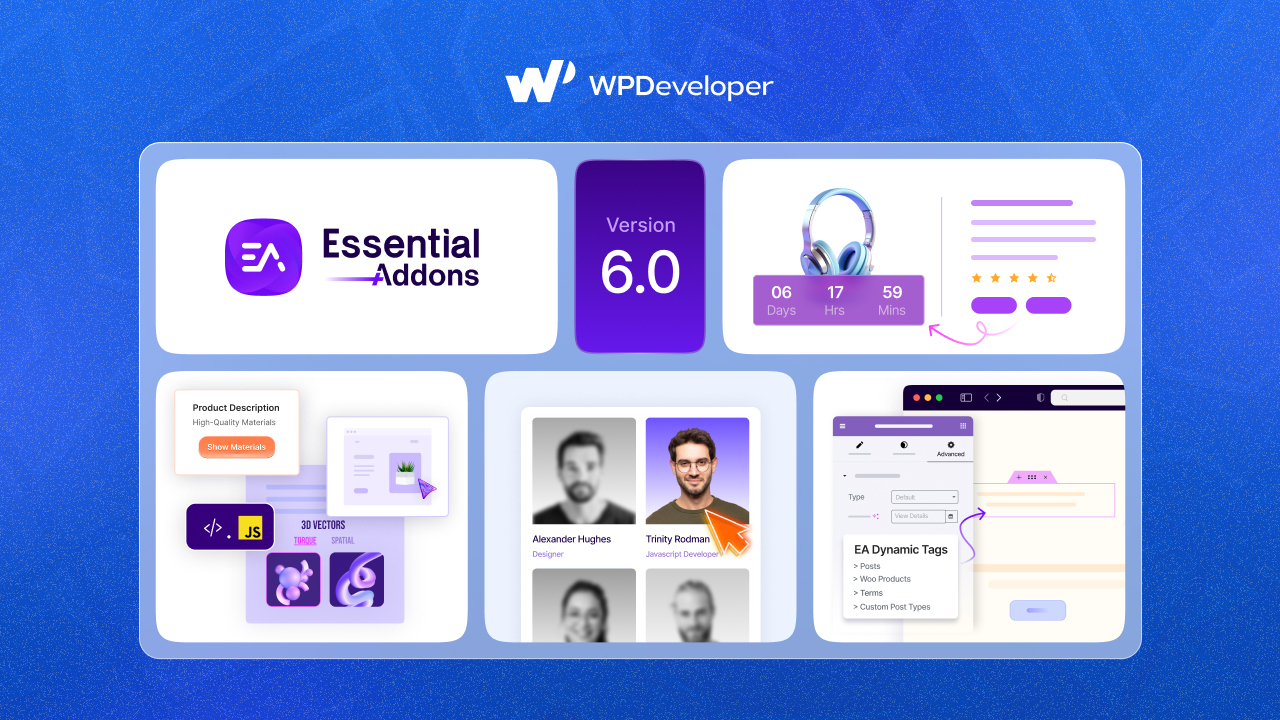Modern web development frequently involves designers and developers working separately – designers create eye-catching, user-friendly interfaces, while developers bring them to life. However, it is not easy to turn a polished design into a fully functional WordPress website. Several issues can arise, including a lack of coding expertise, maintaining the design’s visual appearance, and utilizing multiple design tools and platforms simultaneously. That is where Essential Addons’ Figma to Elementor converter comes into play to make a smooth Figma to WordPress conversion.

With this tool, a new dynamic is emerging & mitigating the gap between design & development that ultimately results in fully functional WordPress websites. With this feature, we will explore how it streamlines web workflows and enables designers and teams to build faster and more intuitive websites.
What Are the Common Challenges While Converting Design into Development?
Creating a live website from Figma is one of the most challenging tasks for any web designer. Once design elements are turned into code, they sometimes lose precision or responsiveness, as the process often involves back-and-forth communication with developers. Consequently, you may encounter:
- Revisions that take time
- A lack of consistency in design
- Increased dependency on developers for minor changes
Designers and developers can experience delays, miscommunications, and frustration due to this gap, particularly when quick turnaround times are crucial.
Enter the Figma to WordPress Conversion: Seamless Integration for Faster Development

Essential Addons’ Figma to Elementor converter helps mitigate these challenges. With this feature, users can import Figma designs directly into WordPress using the Elementor page builder. Result? A quicker, more streamlined way to convert your vision into a live website – without coding knowledge. Using the Figma to WordPress conversion, you can:
Keep Visual Consistency
As part of the conversion process, one of the major challenges is maintaining the original design of the website. Using the Figma to Elementor Converter, you can convert Figma designs into WordPress designs that are pixel-perfect, preserving fonts, button styles, padding, and design consistency.
Edit without Coding Expertise
This feature allows designers, marketers and content creators to update elements directly in Elementor – in contrast to traditional methods where developers make updates. You do not need any coding knowledge, just point-and-click.
Do Fast Development
The key to success is speed, whether you are working with an agency, freelancer, or marketing team. By converting Figma to WordPress, you can launch websites and landing pages within minutes, saving time and decreasing dependency on developers.
Use Cases: Who Benefits from Figma to WordPress Conversion?
A wide range of users will benefit from Figma to WordPress conversions because they simplify and speed up the process of converting design concepts into live websites. It benefits freelancers, agencies, marketing teams, non-technical creators, and client projects because it allows them to deliver products faster, get better visual accuracy, and depend less on coding expertise.
Freelance Designers & Developers: Deliver Client Projects Faster
As freelancers, we must balance multiple clients and deadlines, which makes efficiency one of our highest priorities. With the Figma to WordPress conversion, they can eliminate manual coding and reduce turnaround time on projects.
- Easily convert Figma designs into WordPress sites, reducing production time.
- With no back-and-forth between teams, iterations based on customer feedback become possible quickly.
- Concurrently managing more projects increases earning potential and flexibility.
- Maintaining visual accuracy ensures the end product matches the original design concept.
Web Design Agencies: Complete Client Websites with Speed and Efficiency
It is essential for agencies overseeing a large number of projects to utilize tools that standardize quality and speed up project delivery. It becomes an integral part of their workflow when they use the Figma to WordPress conversion feature.
- It is much easier to convert approved designs into WordPress sites, allowing development bottlenecks to be reduced.
- The visual and brand standards are maintained with pixel-perfect accuracy.
- When agencies deliver projects efficiently, they can expand their portfolio without sacrificing quality.
- Among development and design teams, there are fewer miscommunications.
Marketing Teams: Streamline Campaign Creation and Boost Output
Having a cohesive branding strategy when marketing campaigns are time-sensitive & most important. With this tool, marketers are able to execute their ideas immediately.
- Traditional development is bypassed by using Figma directly to create landing pages and microsites.
- A consistent look and feel is maintained between marketing collateral and live web pages.
- In real-time marketing situations, like flash sales or product launches, teams can respond quickly.
- The execution of campaigns is more creative with no technical barriers.
Non-Technical Creators: Empower Your Creative Projects Without Coding Skills
Whether you are an individual or a small business, independence and simplicity are essential attributes. Web creation is made easier with the converter, as it removes traditional barriers.
- Create real websites without any coding knowledge.
- Elementor and visual editors make it easy to update and customize content.
- Stay in control of the creative process and make changes to the site as needed, instantly.
- Save time and money by not relying on outside developers.
Things to Keep in Mind While Converting Figma to WordPress [Best Practices]
To ensure the best results when converting the Figma design into a ready WordPress website, you need to keep a few things in mind. If you maintain so, the outcome will be effective no matter what your purpose is. The following things you consider:
- Naming Your Figma Layouts Properly: Need to make sure your design layouts/frames’ naming is accurate in Figma to avoid any misalignment while converting it into a WordPress website.
- Choosing the Correct Layout: When you generate the JSON code, keep an eye out that you are selecting the right layout you want to convert. Otherwise, your final result will not be the same as you wanted because of the missing elements.
- Regenerating the JSON Code: By any chance, if you make any changes to your Figma design, make sure that you are regenerating your JSON code to see the latest design updated after converting it into a ready WordPress website.
Why Figma to WordPress Conversion Could Be the Game-Changer for Web Building?
Design, development, and team collaboration are revolutionizing website creation with the Figma to WordPress conversion. With this tool, your designs can be brought to life in a way that retains their original visual impact and functionality without sacrificing any aspects of their intended purpose.
If you are a freelancer, an agency, a marketing team, or a non-technical creator, this feature will help you get more done, improve design consistency, and be more autonomous in managing your WordPress sites. Anyone who wants to streamline their development to the design process should check out this solution.
More Resources You Need 👇
- Introducing Figma to Elementor Converter: The Easiest Way to Turn Designs into WordPress Sites
- How to Use Figma to Elementor Converter to Design with Elementor
Is there anything holding you back? Take advantage of this tool and convert your Figma designs to a ready WordPress site in no time.
Join our community to stay connected with fellow WordPress enthusiasts and subscribe to our blogs for the latest features, updates, tips and more.





